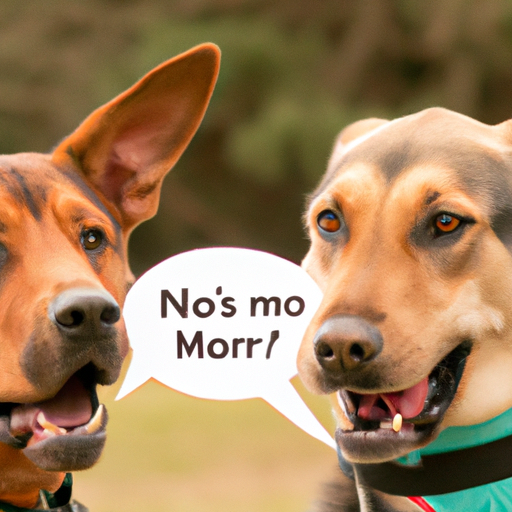Understanding the Behavior
Dogs engage in numerous behaviors that may seem odd to us humans, but are completely normal in the canine world. Chewing or nibbling on another dog’s ears is one such behavior. Dogs often do this as a form of social interaction, grooming, or play. However, when this behavior becomes obsessive or causes harm, it’s time to step in.
Here’s what you need to understand:
- Dogs are pack animals and will often engage in behaviors that may seem odd to us, but are completely normal in their world.
- Dogs use their mouths to explore the world, and this includes nibbling on their furry friends’ ears.
- However, if the behavior becomes obsessive or is causing harm, it’s time to intervene.
When to Worry
Not all ear chewing is a cause for concern. If it’s infrequent, gentle, and both dogs seem comfortable, it’s likely just a normal interaction. However, if the chewing is causing visible harm such as cuts, redness, or discomfort, or if it seems to be an obsessive behavior, it’s time to step in.
| Normal Behavior | Cause for Concern |
|---|---|
| Infrequent | Obsessive |
| Gentle | Harmful |
| Both dogs comfortable | Dog being chewed on is uncomfortable |
Training Your Dog
Training your dog to stop chewing on other dogs’ ears involves teaching them alternative behaviors and providing appropriate outlets for their energy and need to chew. Here’s a step-by-step guide:
- Redirect their attention: Whenever you see your dog starting to chew on another dog’s ears, redirect their attention to something else, like a toy or a treat.
- Teach them “leave it” command: This command is incredibly useful in stopping unwanted behaviors in their tracks.
- Provide plenty of chew toys: Dogs often chew out of boredom. By providing plenty of chew toys, you can give them an appropriate outlet for their need to chew.
Preventing the Behavior
Prevention is always better than cure. Here are some steps you can take to prevent your dog from chewing other dogs’ ears:
- Regular Exercise: A tired dog is a good dog. Regular exercise helps to burn off excess energy and reduces the likelihood of your dog engaging in destructive behaviors.
- Mental Stimulation: Mental stimulation is just as important as physical exercise. Puzzle toys, obedience training, and interactive games can help keep your dog’s brain busy and reduce boredom.
- Socialization: Proper socialization can help your dog learn appropriate ways to interact with other dogs.
FAQ’s
Q: Why does my dog chew on my other dog’s ears?
A: This can be a form of social interaction, grooming, or play. However, if it becomes obsessive or harmful, it’s important to intervene.
Q: How can I train my dog to stop this behavior?
A: Redirect their attention, teach them the “leave it” command, and provide plenty of chew toys.
Q: How can I prevent this behavior?
A: Regular exercise, mental stimulation, and proper socialization can help prevent this behavior.
Remember, it’s important to monitor your dog’s behavior and intervene if necessary. If you’re ever in doubt, don’t hesitate to seek professional advice.



